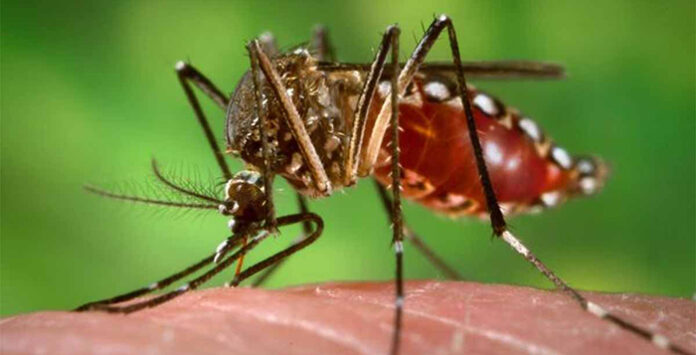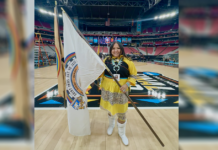By Yvonne Gonzalez
Maricopa officials are preparing for mosquito season and looking at spending thousands to equip the city with its own fogging equipment.
Last year’s mosquito issues at Copper Sky Regional Park and Pacana Park made for an unpleasant experience for visitors, Community Services Director Kristie Riester said.
“We were having a really big issue with it,” she said. “It was just making it hard to enjoy the park.”
She said mosquito abatement is done for comfort as well as concern for illnesses transmitted by the insects.
The city council is expected to discuss mosquito mitigation during a March 15 work session. Riester said the council will be asked to weigh hiring a contractor or buying the fogging equipment to spray areas impacted by mosquitoes.
“We will be presenting two different equipment options to council for foggers,” she wrote in an email. “One is $8,000 and the other is $15,000. The main difference between the two models is technology and noise level.”
Riester said two staff members are already certified to use the fogging equipment, and purchasing it means the city won’t have to pay a contractor each time the parks need to be sprayed.
[quote_box_right]“We were having a really big issue with [mosquitoes]. It was just making it hard to enjoy the park.” – Kristie Riester, Community Services Director[/quote_box_right]
“It was hard,” she said of last year’s mosquito abatement. “The company that we found that was able to come out and do it for us, they came when they had other larger contracts in the area. It was such a small contract that it was sometimes hard to coordinate that.”
She said the city tried to spray the parks once a week, but if weather or other factors prevented the company from coming out, it was a challenge to reschedule.
The city sprayed the parks starting in mid-June, and Riester said the last application was in September. Fogging cost $312 for both parks, putting costs for last year at roughly $2,000.
She said the fogging spray isn’t very expensive, and the city would be able to spray more frequently with its own equipment.
“If we can purchase the equipment and do it in-house, it would save a tremendous amount of money and give us more freedom to spray when we need to,” she said.
According to the Arizona Department of Health Services (ADHS), the most common mosquito-borne disease in Arizona is West Nile virus. About one in five people bitten by an infected mosquito will experience the virus’s flu-like symptoms.
The state agency conducts mosquito surveillance, testing samples for viruses so at-risk communities can be identified and steps taken to prevent transmission.
Reister said spreading disease is always a concern for the city.
“That’s why we did some abatement last year,” she said.
Staff members attended a University of Arizona workshop on mosquitoes in Arizona “to get a better understanding of the insects for the upcoming season,” Riester said. “I think they learned a lot from that.”
The World Health Organization recently declared the Zika virus an international health emergency. The virus started circulating in the Americas in Brazil, with about 20 percent of infected people showing symptoms like rash and fever.
There have been no cases of the virus being transmitted in the United States, but, according to the Centers for Disease Control, the public has become alarmed that Zika could be linked to birth defects in newborns.
Arizona is home to the mosquito that can carry Zika as well as the dengue virus, according to ADHS. Dengue has been expanding from the tropics and subtropics, with symptoms including high fever that last four to seven days.
While there have been no locally acquired cases of either virus, state health officials have included that type of mosquito, the Aedes aegypti, in the surveillance effort.
Those traveling to countries where Zika is being transmitted are advised to take steps to prevent mosquito bites, like wearing long sleeves.
The health department says detecting and controlling mosquito breeding sites depends on the combined efforts of the state, counties, tribal agencies, local municipalities and residents. Mosquito-borne virus transmission is most prevalent from May to October.
This story appeared in the March issue of InMaricopa News.


















